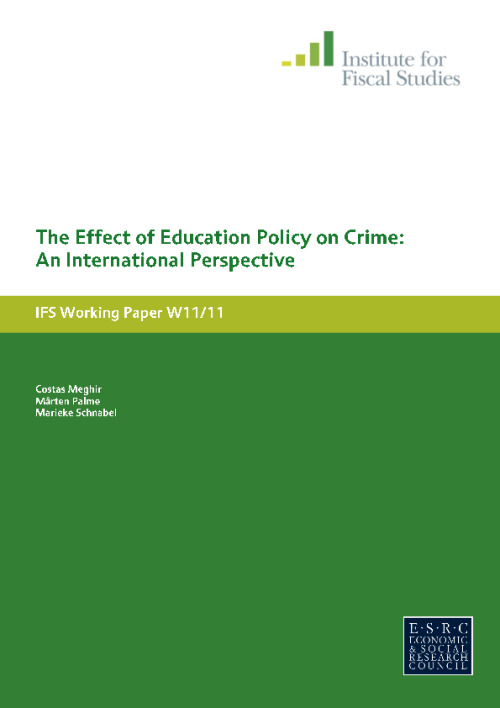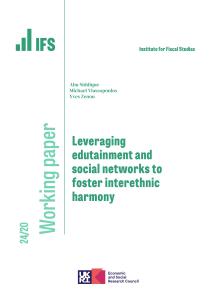Downloads

wp1111.pdf
PDF | 824.36 KB
<p>The Swedish comprehensive school reform implied an extension of the number of years of compulsory school from 7 or 8 to 9 for the entire nation and was implemented as a social experiment by municipality between 1949 and 1962. A previous study (Meghir and Palme, 2005) has shown that this reform signifi cantly increased the number of years of schooling as well as labor earnings of the children who went through the post reform </p><p>school system, in particular for individuals originating from homes with low educated fathers. This study estimates the impact of the reform on criminal behavior: both within the generation directly affected by the reform as well as their children. We use census data on all born in Sweden between 1945 and 1955 and all their children merged with individual register data on all convictions between 1981 and 2008. We find a signifi cant inverse effect of the reform on criminal behavior of men and on sons to fathers who went through the new school system.</p>
Authors

Research Fellow Yale University
Costas is a Research Fellow of the IFS and a Professor of Economics at Yale University and a Visiting Professor at University College London.

Research Fellow University of Stockholm
Mårten is a Research Fellow at the IFS and Associate Professor at Stockholm University, previously at the Stockholm School of Economics.

Marieke Schnabel
Working Paper details
- DOI
- 10.1920/wp.ifs.2011.1111
- Publisher
- IFS
Suggested citation
C, Meghir and M, Palme and M, Schnabel. (2011). The effect of education policy on crime: an intergenerational perspective. London: IFS. Available at: https://ifs.org.uk/publications/effect-education-policy-crime-intergenerational-perspective (accessed: 20 May 2024).
More from IFS
Understand this issue

Sure Start achieved its aims, then we threw it away
15 April 2024

Scottish Budget 2024-25: IFS analysis

A mess has been made of Child Benefit, and the clear-up operation may not be easy
29 March 2024
Policy analysis

The short- and medium-term impacts of Sure Start on educational outcomes
9 April 2024

Sure Start greatly improved disadvantaged children’s GCSE results
9 April 2024

What you need to know about the new childcare entitlements
28 March 2024
Academic research

Higher Education Access and Funding: challenges and policy options

Forced displacement, mental health, and child development: Evidence from Rohingya refugees
10 May 2024

Leveraging edutainment and social networks to foster interethnic harmony
10 May 2024